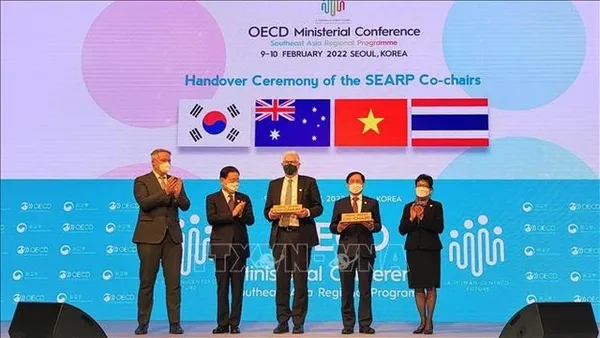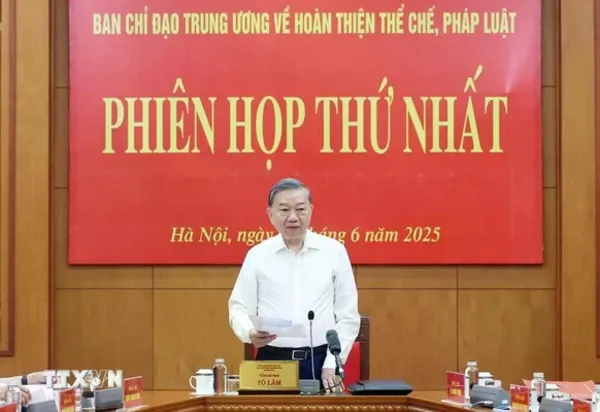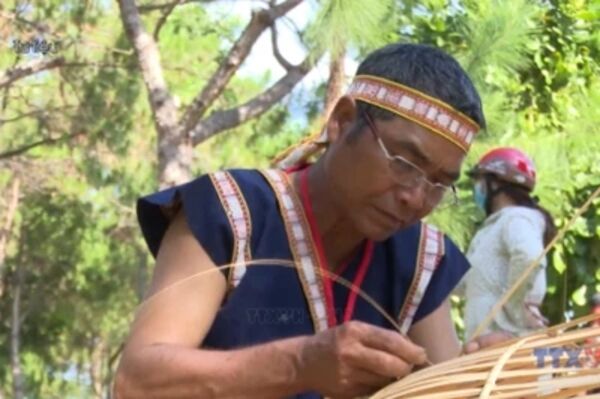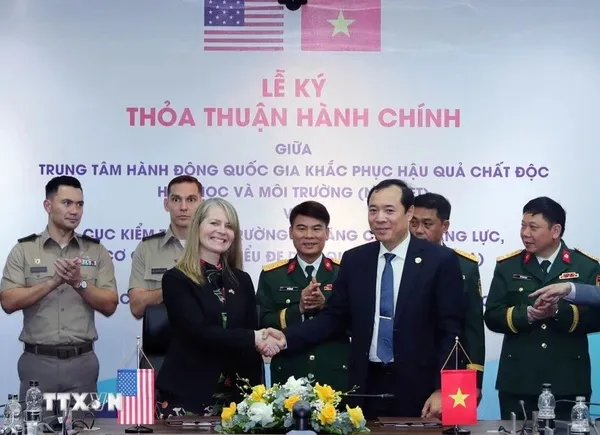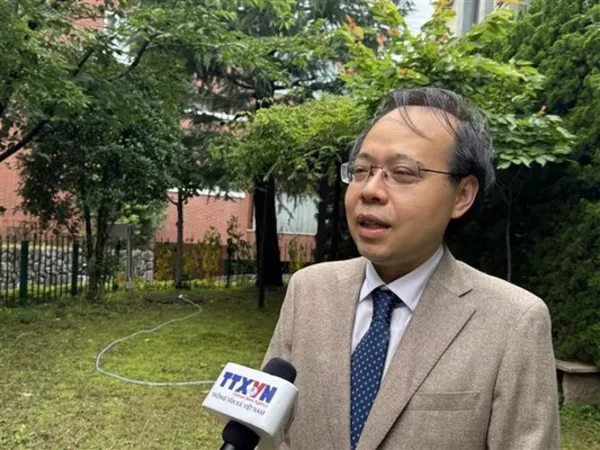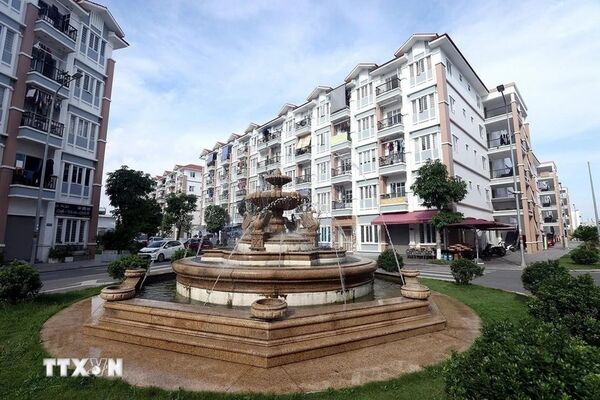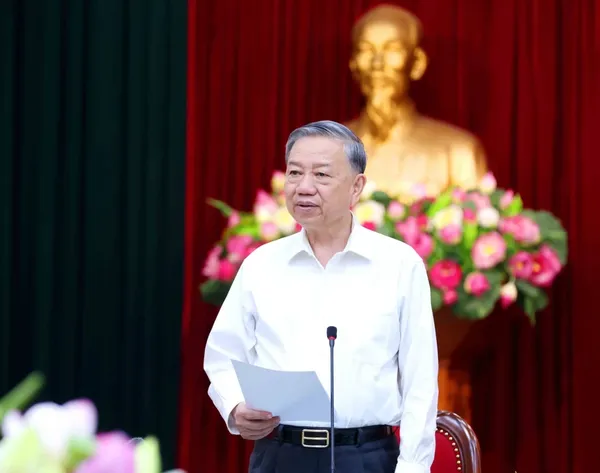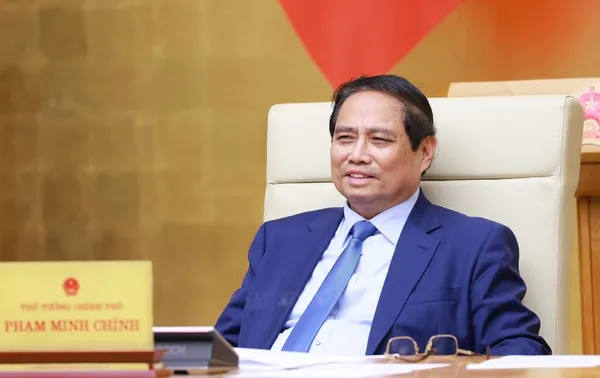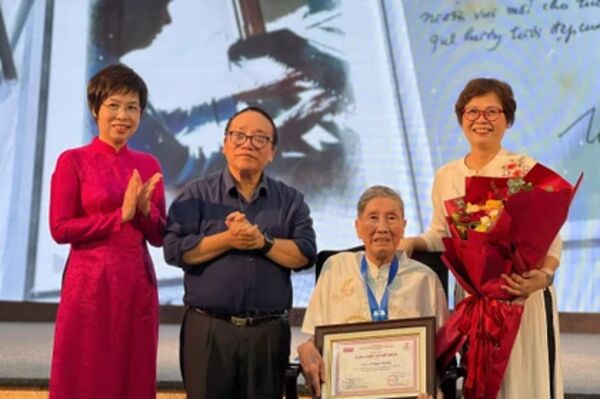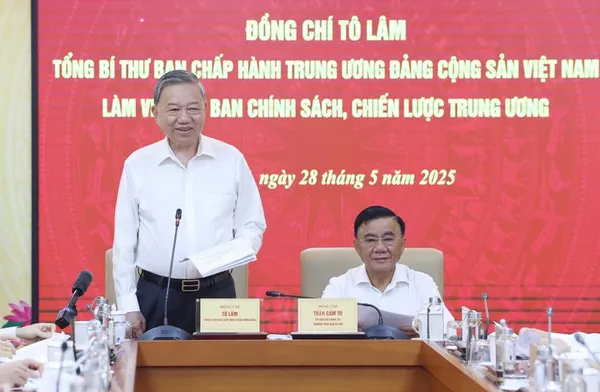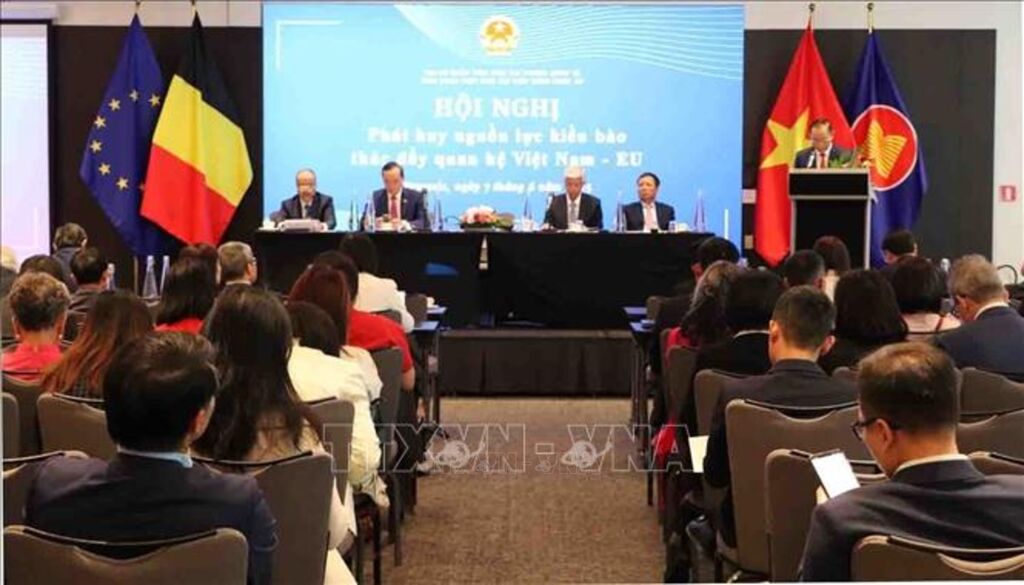 |
| At the conference held in Brussels, Belgium, on June 7. (Photo: VNA) |
Brussels, June 8 (VNA) - A conference on harnessing the potential of overseas Vietnamese (OV) to foster ties between Vietnam and the European Union (EU) was held in Brussels, Belgium, on June 7, celebrating the 35th anniversary of diplomatic relations between the two sides.
Jointly organised by the Vietnamese Ministry of Foreign Affairs and the Vietnamese Embassy in Belgium and Luxembourg, the event drew over 500 OV intellectuals, entrepreneurs and researchers from 20 European nations. It was the first time that the Vietnamese community in Europe engaged in a direct dialogue with senior officials from the home country.
In his opening address, Nguyen Van Thao, Ambassador to Belgium and Permanent Representative of Vietnam to the EU, underlined the pivotal role of the conference in connecting the intellectual capital of the OV with the country’s development needs, given Vietnam’s transition to a green, innovative, and sustainable growth model.
The ambassador affirmed that diplomatic missions would serve as proactive bridges, working to dismantle obstacles and support overseas intellectuals in bringing forward initiatives of national importance.
Deputy Minister of Foreign Affairs Nguyen Minh Hang stressed that the dedication and expertise of the OV group will further advance Vietnam–EU cooperation.
The conference featured more than 20 in-depth presentations from Vietnamese scientists, entrepreneurs, and scholars residing in Europe. A notable highlight was the participants’ consensus and enthusiasm to contribute, particularly in line with the Politburo’s recently issued Resolution 57, which calls for mobilising the global Vietnamese intellectual network to help build a strong and prosperous nation by 2045.
Pham Huy Hoang, President of the Vietnam Innovation Network in Europe (VINEU), noted that tens of thousands of Vietnamese experts are currently working at leading research institutes, universities, and technology corporations across Europe.
He said this resource should be viewed from three perspectives: high-level expertise and access to advanced technologies, extensive international connections, and a strong sense of attachment to the homeland. Hoang also proposed building clear legal frameworks to encourage contributions and setting up contact points for swift and effective implementation of joint projects.
Dr Phung Quoc Tri, President of the Vietnam Intellectual Association in Belgium and Luxembourg (VILAB), suggested the Vietnamese Ministry of Science and Technology organise regular forums to connect overseas experts with development projects at home. He also called for the creation of a European network of Vietnamese talents and mechanisms to facilitate technology transfer in areas such as artificial intelligence, biotechnology, nuclear medicine, and renewable energy.
Talking with the Vietnam News Agency (VNA)'s correspondent, Nguyen Xuan Thinh, President of the Vietnam–Germany Innovation Network, described Resolution 57 as a farsighted policy, laying the groundwork for mobilising the OV in driving scientific and technological innovation.
He shared details of ongoing projects in Vietnam, including smart city initiatives in partnership with Vingroup, employing IoT, AI, and 3D microclimate simulation technologies. His network is also establishing platforms to help Vietnamese delegations access modern research ecosystems in Germany and beyond.
Le Nguyen Tung, Secretary of VILAB and founder of the Vietnam–Belgium Hospital, revealed that VILAB is actively working to connect corporations, research centres, universities, and hospitals, particularly in the healthcare sector. This, he said, could pave the way for early cooperation with leading European medical centres, raising standards of treatment and training in Vietnam.
VILAB expects to receive support from domestic agencies to jointly develop internationally scaled projects. Tung underscored that while European partners are fully on board, effective coordination is essential to turn opportunities into tangible action.
Pham Ngoc Chu, head of the association of Vietnamese entrepreneurs in Europe, expressed a deep desire to return and contribute to Vietnam after more than three decades in Hungary. He urged the Vietnamese Government to “roll out the red carpet” for overseas businesses to bring advanced technologies back home and deploy them rapidly and efficiently, ensuring Vietnam seizes the window of global competition.
From a media perspective, journalist Kieu Bich Huong, co-founder of the Vietnam Happiness Station media channel, proposed the establishment of a network of Vietnamese media outlets in Europe to disseminate accurate information and build a modern, innovative, and globally integrated image of the country./.
